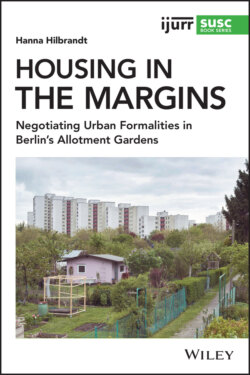Читать книгу Housing in the Margins - Hanna Hilbrandt - Страница 20
Notes
Оглавление1 1 See, for instance, still earlier literature on Latin America (e.g. Abrams, 1964). As Marx and Kelling rightly note, “we need to be wary about identifying a singular historical trajectory of debate” (2019: 3).
2 2 In Provincializing Europe, a centerpiece of this debate, Chakrabarty has labeled these conventions as “eurocentristic,” denoting that even in more global ways of theorizing the world, “‘Europe’ remains the sovereign, theoretical subject of all histories, including the ones we call ‘Indian,’ ‘Chinese,’ and ‘Kenyan’” (2008: 27; for similar arguments see Mufti, 2005; Connell, 2007, 2014; Hawley and Krishnaswamy, 2008).
3 3 But see Simone, 2010; Hackenbroch, 2011; Hackenbroch and Hossain, 2012; Lindell et al., 2019, among others.
4 4 In contrast, for Diane Davis, “a focus on informality provides a lens for understanding urban governance as a system of practises that link citizens, state, and markets” (2016: 6). Davis argues that the ways in which the local state decides to deal with informality (ranging from toleration to suppression) are not only relevant to understanding the priorities of states with regard to order, law, and citizenship, they also work, as she writes, to “restructure … or transform … their own nature and activities” (ibid). The state’s dealing with informality can thus be conceived “as a process of state formation, meaning that informality serves as the driving force in determining the nature and contours of the state, and not vice versa” (ibid: 7).
5 5 See Allen (2003) for a distinction between these different modes of power.
